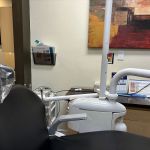How to Recognize and Treat Dental Infections for Better Oral Health
- What Is a Dental Infection?
- Symptoms of Dental Infections
- Causes of Dental Infections
- How to Treat a Tooth Infection
- Preventing Future Dental Infections
What Is a Dental Infection?
A dental infection occurs when harmful bacteria invade the tissue inside a tooth, often leading to abscesses or gum problems. Dental infections typically start when a cavity or cracked tooth allows bacteria to enter the tooth, affecting the soft pulp. If left untreated, these infections can spread to surrounding tissues and lead to serious complications, including tooth loss. Recognizing dental infections early is essential for effective treatment and to avoid further complications.
Symptoms of Dental Infections
The symptoms of a dental infection can vary, but common signs to watch for include:
- Pain and Sensitivity: A constant toothache or sensitivity to hot or cold is often the first sign of an infection.
- Swelling: Swelling around the affected tooth, gums, or face is common as the infection spreads.
- Pus or Discharge: The appearance of pus or a foul-smelling discharge around the gums is a telltale sign of an abscessed tooth.
- Fever: A fever can accompany a dental infection if it has spread beyond the tooth and into the surrounding tissues.
If you experience any of these symptoms, it's crucial to see a dentist as soon as possible for proper diagnosis and treatment.
Causes of Dental Infections
Dental infections are usually caused by bacteria that invade the tooth or gums due to various factors:
- Cavities: Untreated cavities are the most common cause of dental infections. They allow bacteria to enter the tooth’s pulp.
- Cracked or Broken Teeth: A cracked tooth can create an entry point for bacteria, which can lead to an infection.
- Poor Oral Hygiene: Insufficient brushing and flossing can lead to plaque buildup, which may result in cavities and gum disease.
- Gum Disease: Untreated gum disease can also lead to infections in the roots of your teeth.
Maintaining good oral hygiene and visiting your dentist regularly can help prevent infections caused by these factors.
How to Treat a Tooth Infection
If you suspect you have a dental infection, it's crucial to seek treatment from a dentist. Here are some common treatments for dental infections:
- Antibiotics: Your dentist may prescribe antibiotics to help kill the bacteria causing the infection and prevent it from spreading.
- Root Canal Treatment: If the infection has reached the pulp, a root canal may be necessary to remove the infected tissue and seal the tooth.
- Abscess Drainage: If you have an abscess, your dentist may drain the pus and clean the area to promote healing.
- Tooth Extraction: In severe cases, the infected tooth may need to be removed if it cannot be saved.
Timely treatment is crucial for stopping the infection before it causes irreversible damage or spreads to other areas of your body.
Preventing Future Dental Infections
Preventing dental infections starts with maintaining proper oral hygiene and visiting your dentist regularly. Here are some tips to help you avoid future infections:
- Brush and Floss Regularly: Brush your teeth at least twice a day and floss daily to remove plaque and prevent cavities.
- Use Fluoride Toothpaste: Fluoride helps strengthen tooth enamel and reduce the risk of decay.
- Visit Your Dentist: Regular checkups will help catch any potential issues early and keep your teeth and gums healthy.
- Avoid Sugary Foods: Excess sugar can promote the growth of harmful bacteria in your mouth, leading to cavities and infections.
By following these preventive measures, you can significantly reduce your risk of developing dental infections in the future.
Concerned about a potential dental infection? Don’t wait for the symptoms to worsen—visit your dentist today for a thorough evaluation and treatment options. For more tips on how to maintain healthy teeth and gums, visit Dentistry Toothtruth.







 Kangaroo Smiles Pediatric Dentistry and Orthodontics4.0 (1308 review)
Kangaroo Smiles Pediatric Dentistry and Orthodontics4.0 (1308 review) Unbraced Invisalign Studio4.0 (74 review)
Unbraced Invisalign Studio4.0 (74 review) Orthodontic Care of Washington - Tacoma4.0 (327 review)
Orthodontic Care of Washington - Tacoma4.0 (327 review) Foreside Dental Health Care4.0 (245 review)
Foreside Dental Health Care4.0 (245 review) Affordable Dental at Eastern & Windmill4.0 (287 review)
Affordable Dental at Eastern & Windmill4.0 (287 review) Smiles of Elgin4.0 (46 review)
Smiles of Elgin4.0 (46 review) The Importance of Oral Health Education During Pregnancy for a Healthy Pregnancy
The Importance of Oral Health Education During Pregnancy for a Healthy Pregnancy Best Tips for Brushing Your Teeth Properly for Healthy Gums: Essential Techniques for Oral Health
Best Tips for Brushing Your Teeth Properly for Healthy Gums: Essential Techniques for Oral Health Why Skipping Dental Checkups Can Lead to Bigger Oral Health Problems
Why Skipping Dental Checkups Can Lead to Bigger Oral Health Problems Advantages of Porcelain Dental Restorations
Advantages of Porcelain Dental Restorations How Can Diabetes Cause Tooth and Gum Problems? Preventing and Managing Oral Health Issues
How Can Diabetes Cause Tooth and Gum Problems? Preventing and Managing Oral Health Issues Healthy Habits for Promoting Good Oral Health and Hygiene: Tips for a Healthy Smile
Healthy Habits for Promoting Good Oral Health and Hygiene: Tips for a Healthy Smile